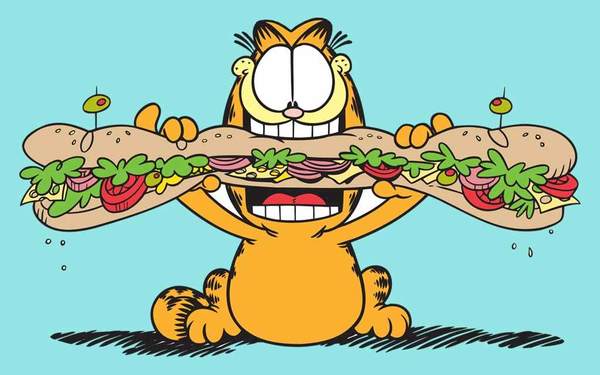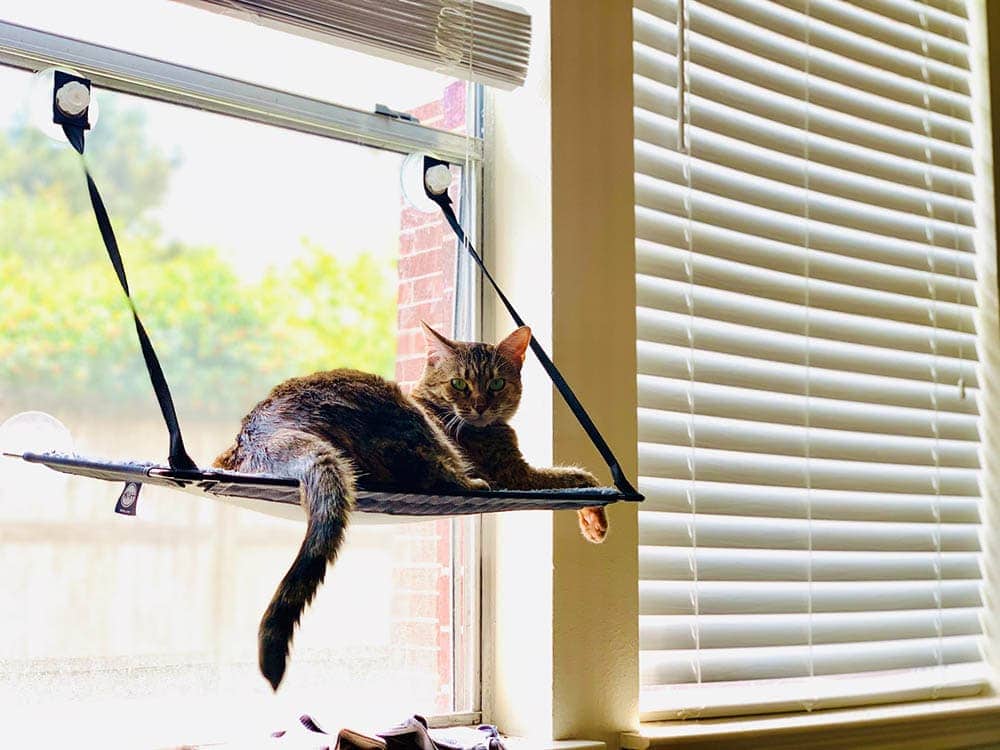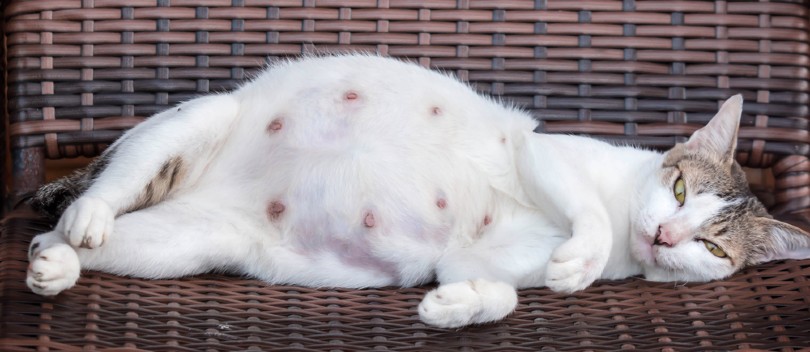Cat Stopped Grooming: 5 Possible Reasons (Vet Reviewed)
By Beth Crane
Updated on
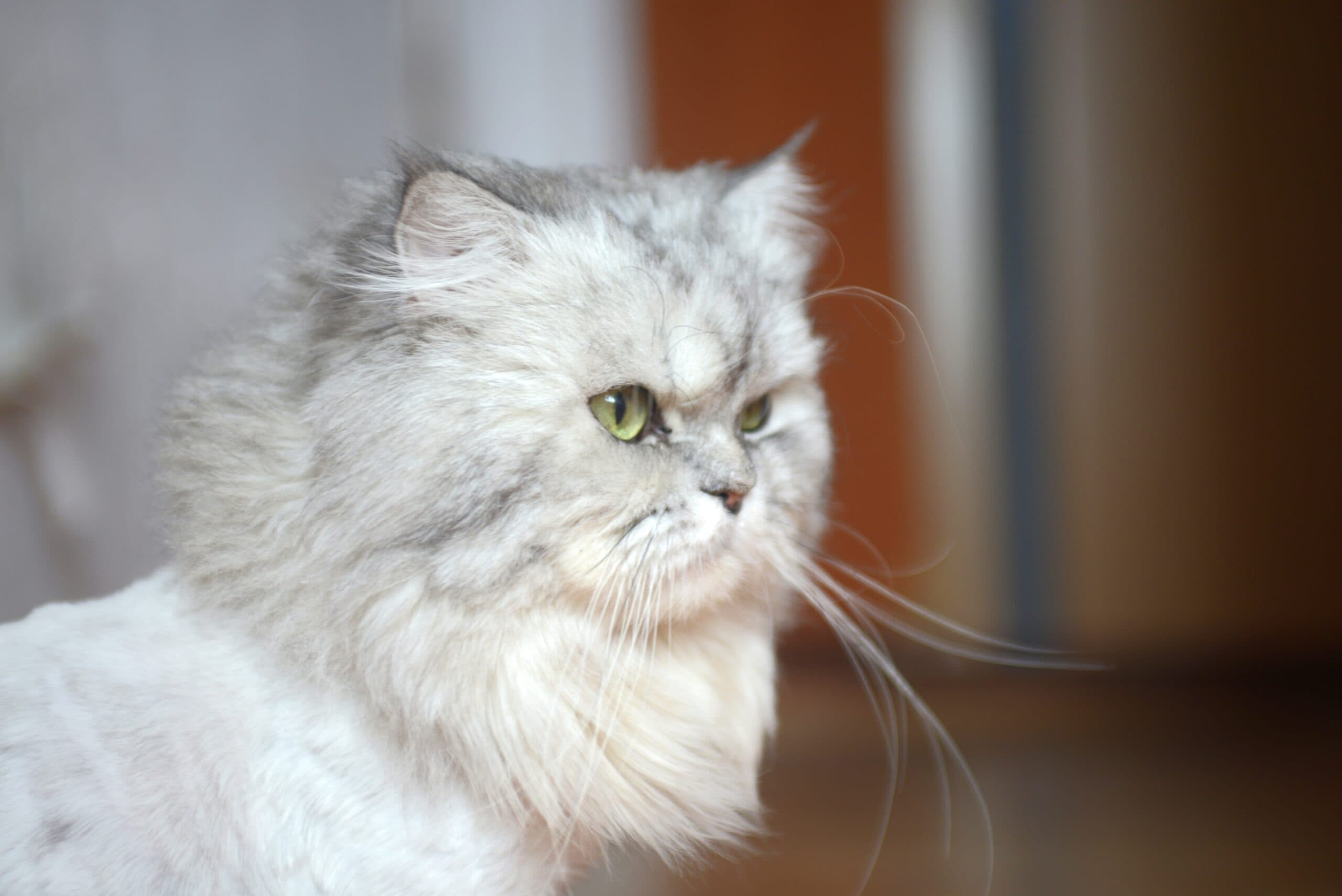
Cats are naturally clean animals. They groom themselves for up to 50% of their day, leaving only half of their time awake for eating and playing. Cats that suddenly stop grooming or groom less and less before stopping altogether may be sick or injured.
Cats are good at hiding illness or pain, so a shabby coat and lack of self-grooming can alert owners that they need to visit the veterinarian. If your cat has stopped grooming, you need to find out why; read on to discover five likely reasons that your cat has stopped grooming.
The 5 Likely Reasons Why Your Cat Stopped Grooming
1. They’re Unwell
Cats can stop grooming themselves if they don’t feel up to it. Illnesses that cause lethargy or physical discomforts, such as bouts of vomiting and diarrhea, can make your cat feel weak, meaning they don’t have the energy to groom themselves. Other illnesses can cause scruffy or unkempt coats, particularly feline hyperthyroidism.
Hyperthyroidism can make cats almost manic, and they’re so full of nervous energy that they stop grooming. This, along with changes to the hair texture, can make the lack of grooming even more apparent.

2. They’re in Pain
A very common reason cats stop grooming is that it’s too painful for them to do so. Like illnesses, cats are very good at hiding when they’re in pain. Cats do this because it’s instinctual for them to hide their pain to remain vigilant and not be seen as vulnerable by potential predators.
Pain from accidents or injuries like a cat bite, arthritis, or other painful conditions can all cause your cat to stop grooming in one place or all over its body. Arthritic cats, in particular, may find it difficult to bend around in some of the weird and wonderful positions cats get into to groom, so those parts become dirty and unkempt.
3. They’re Getting Older
Older cats can become stiff and have a more limited range of movement due to pain or natural degeneration of the joints. Because of that, senior cats can find it difficult to groom; if it’s too much trouble or uncomfortable, they will eventually stop grooming altogether.
If you have an older cat having trouble grooming, visit your vet for an examination. Older cats are more likely to have health conditions, such as hyperthyroidism or arthritis among others, which can contribute to poor grooming. Geriatric cats may also suffer from Feline Cognitive Dysfunction Syndrome, a kind of dementia that may cause them to forget or lack interest in grooming. In addition, very old cats can sometimes have problems with their vision, which can affect how well they can groom themselves.
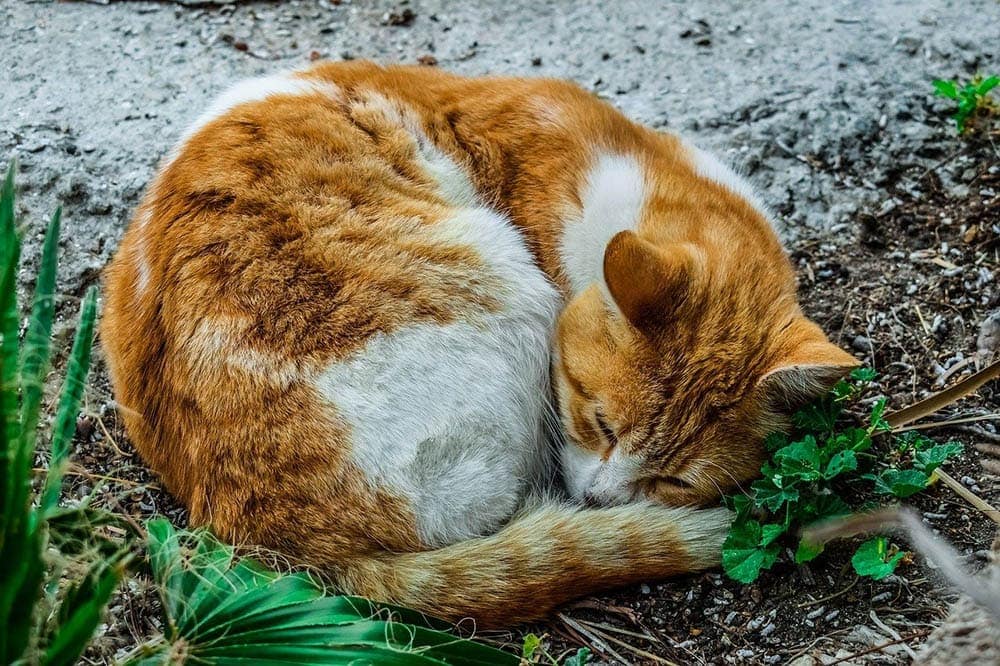
4. They’re Too Fat
Obesity in cats is far too common, with almost 60% of all cats in the U.S. being overweight or obese. Obesity brings a host of health problems for a cat, including being too chunky to groom themselves. As a cat gains excess weight, fat deposits around their neck, abdomen, and back can make it physically impossible to reach certain areas to groom them (commonly the lower back).
The fatter a cat becomes, the less of their body they can reach to groom. This is incredibly distressing for cats as they’re clean animals, and grooming is an essential behavior for them. Additionally, obesity and poor coat can lead to skin problems and sores developing on the skin.
5. They Are Very Stressed
Cats that are chronically stressed or depressed can exhibit abnormal behavior. Cats can become stressed from just about anything, depending on their experiences and personality. Usually, cats will self-groom as a displacement behavior when they’re stressed, soothing themselves and calming down. This can become a problem when it becomes obsessive.
A cat that lives in fear may be too preoccupied to groom themselves effectively. Admittedly, stressed cats will likely still groom themselves even a little when they can, but chronic stress could be why your cat has stopped grooming. Stress can also exacerbate illnesses, such as stomatitis, that can make grooming more difficult or painful.
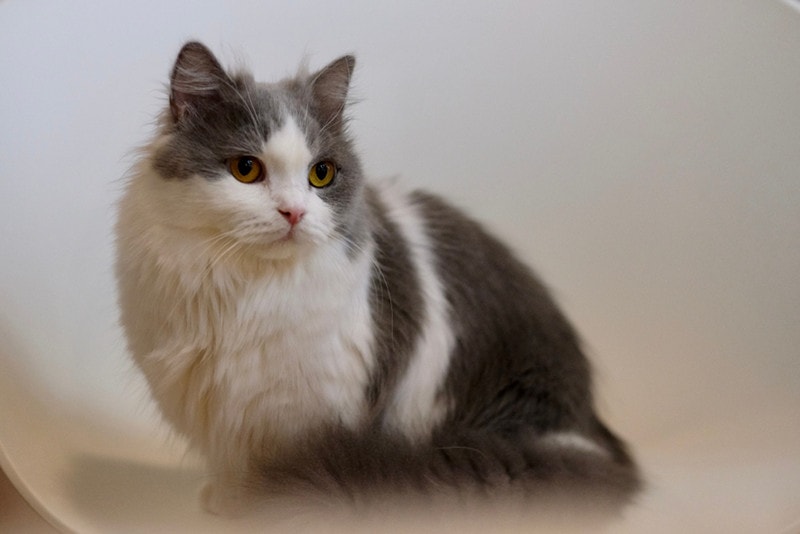
Why Do Cats Groom?
Cats groom for many reasons, but the primary objective is to stay clean. Cats are fastidious about hygiene, and most cats have pristine coats free from dirt and debris. The exception is very long-haired breeds such as the Persian; their long hair gets matted very easily, and they need more help grooming than most cats.
Cats also groom to regulate their body temperature as they don’t sweat as humans do. Cats can sweat from specific areas of their body, such as their paw pads, while humans perspire from many sweat glands all over the body. Licking their coat helps them stay cool in the heat! Finally, grooming can help a cat relieve stress or anxiety, and it’s a sign of a strong bond when cats groom each other. It’s an integral part of feline communication, so it’s no surprise they spend so long doing it!
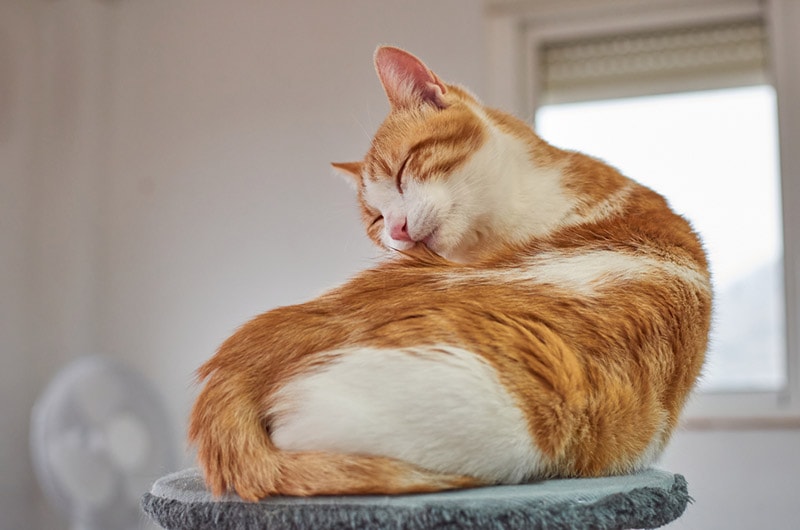
What Should I Do If My Cat Stops Grooming?
If you notice your cat’s hair getting matted or their coat looking more unkempt, you must take them to the vet. Cats never stop grooming themselves for a good reason, so you should get them checked over to see why they have stopped. Self-grooming does more for a cat than just keeping them clean. It helps them thermoregulate, calm down, and process intense emotions or stress.
If your cat isn’t grooming because of pain or an illness, taking them to the vet can help them recover and be more comfortable. For example, cats with dental disease often stop grooming because of how painful it is for them, but they groom themselves again as soon as they are pain-free! Likewise, cats that were too overweight to groom will groom themselves in earnest as soon as they can reach the parts that were restricted. It’s best to always monitor your cat and get them checked over by the veterinarian if you notice any changes in behavior, including a change in grooming habits.
Regular grooming has many health benefits for your cat, but it’s much easier with an effective brush. The Hepper Cat Brush will make grooming more fun for you and your cat.
Conclusion
Cats are very clean and will keep their coats in pristine condition most of the time. However, there are circumstances when your cat might suddenly stop grooming. If your cat stops grooming, it’s almost always a sign that something is wrong, and the cat should be taken to the vet. Many reasons that a cat stops self-grooming (such as obesity) are treatable, and you can get your cat back to being perfectly clean in no time!
Featured Image Credit: JumpStory




